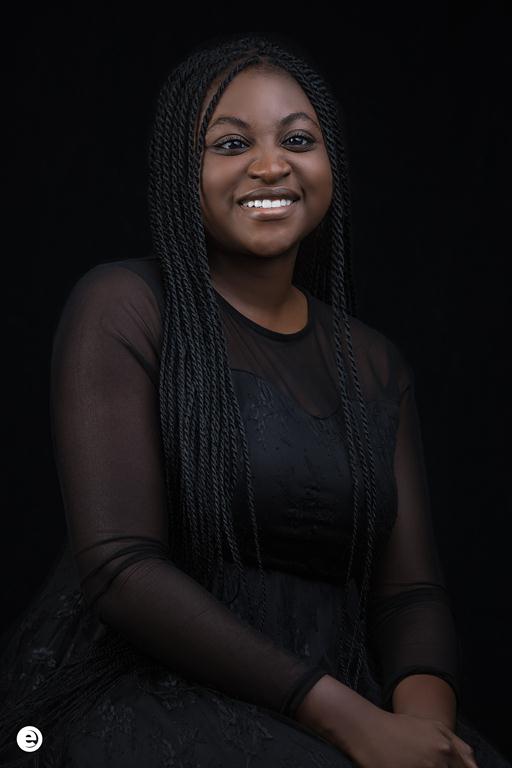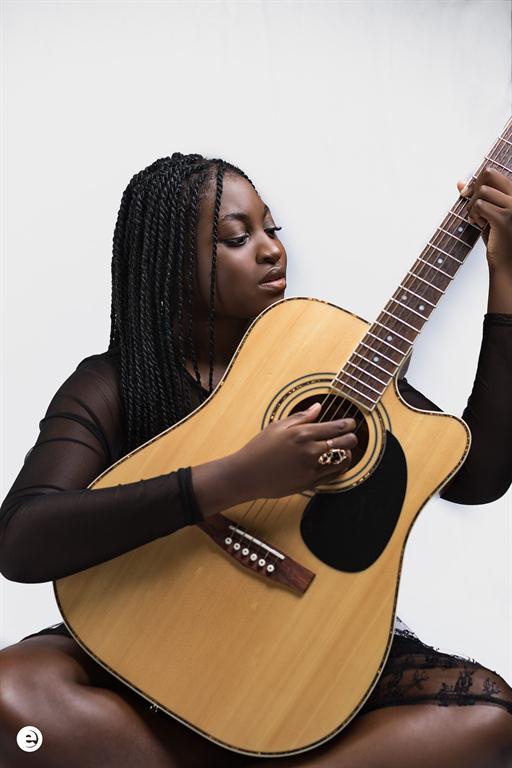Fighting for inclusivity
“The system did not plan for us to get this far.”
Hinauarue Rijatua
According to the Namibia Statistics Agency, 5% of the Namibian population is living a disability. Although a minority, they are part of key individuals who build up our nation, and deserve to be granted the same opportunities as any other person would.
Registered nurse and matron Maihapa Rijatua said “these are people in need of dire assistance. They don’t necessarily want help but they certainly require it”. Despite the strong front they often put up, life is harder than what it looks like from the outside looking in.
Alvarita Benedito Lucungo, a young woman with a condition called congenital glaucoma, is part of this 5%. This is a hereditary disorder which affects the optical nerve, creating a lot of fluid as well as affecting the development of the angle of the eye. It results in the poor development of the eye and harshly affects eyesight.
The 18-year-old lives with this extremely rare condition, which only affects one out of every 30 000 live births, causing severe and irreparable loss of vision in the persons affected. Growing up with a visual disability, Lucungo faced some adversity assimilating to the educational system. In her time in primary school, she said she endured discomfort from teachers who believed they were not trained to teach her.
“They felt they were not equipped to teach a student with the condition I have,” she said.
According to a piece written by clinical psychologist Elaine Hunter, “many people living with disabilities in the developing world still face stigma and isolation”.
In addition to this, Lucungo’s teachers constantly took it up with the principal to place her in a different school in absence of the facilities or equipment to teach a student of her condition. Being left with no alternative, she moved schools.
Lack of knowledge
In an interview in 2017, education minister Katrina Hanse-Himarwa mentioned that challenges towards people living with disabilities include lack of knowledge and practical skills among teachers, school principals and staff.
“This can result in feelings of frustration, stress and being overwhelmed,” she said. At the new school Lucungo attended to cater for her special needs, she said that although they had braille and typewriters, the education was poor.
“Majority of the time we were playing the entire day, not necessarily taught,” she said. Due to this, she went back to normal public school where she faced continuous mockery and scrutiny from her teachers. “Simple things like requesting the teachers to write bigger on the board would lead them to making a mockery of you”, which led to her failing that grade. Lucungo refused to let that affect her attitude towards developing herself as an educated individual. She attended online school which she successfully graduated from. “My mom always told me that regardless of the fact that I have a disability, I am still capable of many things.”
She, however, admitted that she could have had it much easier if she was accommodated.
Inclusive education
“The worst affected are often young children whose parents can struggle against cultural and systemic barriers,” Hunter said.
Lucungo added that many schools do not have departments that are solely focused on disabilities, which would make their education inclusive to students with special needs.
The prospect of attending university and furthering her studies served as one of her biggest challenges, trying to grasp the same opportunity her peers had.
“The system did not plan for us to get this far,” she said, referring to the lack of inclusivity for disabled persons in higher institutions of learning.
She went on to say that all degree programmes require you to do internships, in which opportunities are rarely granted to disabled persons, causing an automatic disadvantage.
“It becomes even harder securing a job post studies,” she explained.
“It’s extremely hard to name an organisation or any civil government office that has at least five disabled individuals.”
Social discrimination
In most cases, especially in Namibia, parents who have a child with a disability would rather choose to keep their child at home, knowing the basic education system will fail them. They also know their children will face immense social discrimination that if they do happen to make it, companies are closed off to hiring disabled persons either due to the stigma or the absence of equipment and infrastructure to do so.
“It’s one thing to tolerate and a completely different thing to include.”
Lucungo added that public offices such as the ministry of home affairs are void of accommodative staff such as frontline workers who can do sign language, and wheelchair accessibility.
“Not all of us enjoy relying on people,” the 18-year-old said.
She added that all she wants is life made easier for disabled persons. The narrative of disability seen as a liability should fall, as people do not deserve to feel like a ‘waste of space’.
The young woman aims to inspire her peers by using all the adversity, scrutiny and hardships along the way to fuel her and shape her to become the successful active member of society she knows she will be.
“You are not a lesser person because of your disability,” she said.
Lucungo is currently embarking on a diploma in counselling at Philippi Trust, and digging deeper into her talents as a singer, songwriter and composer.
According to the Namibia Statistics Agency, 5% of the Namibian population is living a disability. Although a minority, they are part of key individuals who build up our nation, and deserve to be granted the same opportunities as any other person would.
Registered nurse and matron Maihapa Rijatua said “these are people in need of dire assistance. They don’t necessarily want help but they certainly require it”. Despite the strong front they often put up, life is harder than what it looks like from the outside looking in.
Alvarita Benedito Lucungo, a young woman with a condition called congenital glaucoma, is part of this 5%. This is a hereditary disorder which affects the optical nerve, creating a lot of fluid as well as affecting the development of the angle of the eye. It results in the poor development of the eye and harshly affects eyesight.
The 18-year-old lives with this extremely rare condition, which only affects one out of every 30 000 live births, causing severe and irreparable loss of vision in the persons affected. Growing up with a visual disability, Lucungo faced some adversity assimilating to the educational system. In her time in primary school, she said she endured discomfort from teachers who believed they were not trained to teach her.
“They felt they were not equipped to teach a student with the condition I have,” she said.
According to a piece written by clinical psychologist Elaine Hunter, “many people living with disabilities in the developing world still face stigma and isolation”.
In addition to this, Lucungo’s teachers constantly took it up with the principal to place her in a different school in absence of the facilities or equipment to teach a student of her condition. Being left with no alternative, she moved schools.
Lack of knowledge
In an interview in 2017, education minister Katrina Hanse-Himarwa mentioned that challenges towards people living with disabilities include lack of knowledge and practical skills among teachers, school principals and staff.
“This can result in feelings of frustration, stress and being overwhelmed,” she said. At the new school Lucungo attended to cater for her special needs, she said that although they had braille and typewriters, the education was poor.
“Majority of the time we were playing the entire day, not necessarily taught,” she said. Due to this, she went back to normal public school where she faced continuous mockery and scrutiny from her teachers. “Simple things like requesting the teachers to write bigger on the board would lead them to making a mockery of you”, which led to her failing that grade. Lucungo refused to let that affect her attitude towards developing herself as an educated individual. She attended online school which she successfully graduated from. “My mom always told me that regardless of the fact that I have a disability, I am still capable of many things.”
She, however, admitted that she could have had it much easier if she was accommodated.
Inclusive education
“The worst affected are often young children whose parents can struggle against cultural and systemic barriers,” Hunter said.
Lucungo added that many schools do not have departments that are solely focused on disabilities, which would make their education inclusive to students with special needs.
The prospect of attending university and furthering her studies served as one of her biggest challenges, trying to grasp the same opportunity her peers had.
“The system did not plan for us to get this far,” she said, referring to the lack of inclusivity for disabled persons in higher institutions of learning.
She went on to say that all degree programmes require you to do internships, in which opportunities are rarely granted to disabled persons, causing an automatic disadvantage.
“It becomes even harder securing a job post studies,” she explained.
“It’s extremely hard to name an organisation or any civil government office that has at least five disabled individuals.”
Social discrimination
In most cases, especially in Namibia, parents who have a child with a disability would rather choose to keep their child at home, knowing the basic education system will fail them. They also know their children will face immense social discrimination that if they do happen to make it, companies are closed off to hiring disabled persons either due to the stigma or the absence of equipment and infrastructure to do so.
“It’s one thing to tolerate and a completely different thing to include.”
Lucungo added that public offices such as the ministry of home affairs are void of accommodative staff such as frontline workers who can do sign language, and wheelchair accessibility.
“Not all of us enjoy relying on people,” the 18-year-old said.
She added that all she wants is life made easier for disabled persons. The narrative of disability seen as a liability should fall, as people do not deserve to feel like a ‘waste of space’.
The young woman aims to inspire her peers by using all the adversity, scrutiny and hardships along the way to fuel her and shape her to become the successful active member of society she knows she will be.
“You are not a lesser person because of your disability,” she said.
Lucungo is currently embarking on a diploma in counselling at Philippi Trust, and digging deeper into her talents as a singer, songwriter and composer.





Kommentaar
Republikein
Geen kommentaar is op hierdie artikel gelaat nie